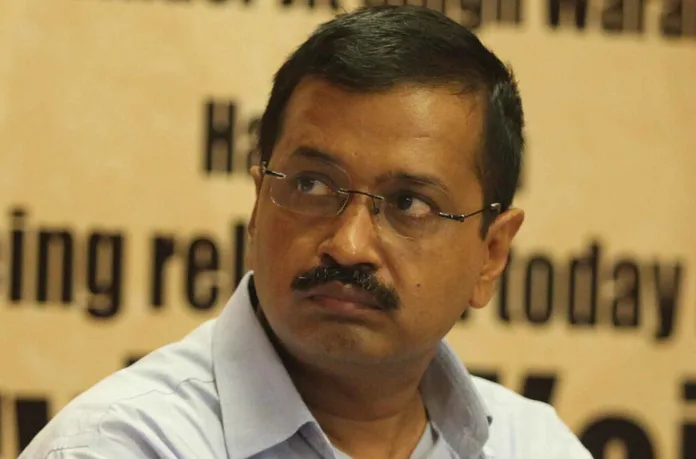The Delhi High Court will deliver its decision on the enforcement directorate’s petition to stay the bail granted to Arvind Kejriwal in the excise policy case
Today, the Delhi High Court is set to pronounce its verdict on the Enforcement Directorate’s (ED) petition seeking a stay on the trial court’s order granting bail to Chief Minister Arvind Kejriwal. The decision comes after the Rouse Avenue court granted Kejriwal bail on Thursday following his arrest by the ED in March in connection with the excise policy case.
Kejriwal, who is currently lodged in Delhi’s Tihar Jail, would have been released on Friday if not for the interim stay imposed by the Delhi High Court. This stay was put in place to allow time for consideration of the ED’s plea against the bail order.
Embed from Getty ImagesThe ED’s petition argues that the trial court’s decision to grant bail was “lopsided and perverse,” claiming it was not afforded ample opportunity to present its case. In response, Kejriwal’s legal team has submitted written arguments asserting that the ED’s claims are “palpably wrong, misleading, and tantamount to subterfuge and misrepresentation.”
Kejriwal’s lawyer emphasized that the trial court’s order was well-reasoned and reflected a proper application of judicial mind, addressing all relevant contentions from both parties. The lawyer also highlighted that Kejriwal is gravely aggrieved by the interim stay, stressing that the order was made after due consideration of all arguments.
On Saturday, Kejriwal moved the Supreme Court against the high court’s interim stay. During a hearing on Monday, the Supreme Court noted the unusual nature of the high court’s stay and scheduled June 26 to hear Kejriwal’s plea, stating it would wait for the high court’s decision.
Kejriwal’s legal counsel argued before the Supreme Court that he is not a flight risk and should be released while the high court decides on the ED’s petition. The ED, on the other hand, continues to assert that the trial court did not give sufficient time for the agency to argue its case fully.
The verdict by the Delhi High Court today will be crucial for Kejriwal and the political landscape of Delhi, as it will determine whether the Chief Minister will remain in custody or be released on bail while the excise policy case continues.
Analysis:
Political: The case against Arvind Kejriwal has significant political implications, particularly for the Aam Aadmi Party (AAP). Kejriwal’s arrest and the subsequent legal battles highlight the ongoing power struggle between the Delhi government and central investigative agencies. A ruling in favour of the ED could bolster the narrative of strict enforcement of the law, while a decision to uphold Kejriwal’s bail might be seen as a victory for AAP and could potentially energize its supporters. The case also underscores the complex dynamics of federal relations in India, especially concerning the jurisdiction and autonomy of state governments.
Social: The water crisis in Delhi, which is central to Atishi’s hunger strike and subsequent hospitalization, reflects broader social issues related to resource allocation and governance. Water scarcity directly impacts millions of residents, especially in marginalized communities. The political and legal battles around this issue highlight the urgent need for sustainable and equitable water management policies. Public awareness and discourse around the crisis have been amplified by the hunger strike, drawing attention to the human impact of administrative and inter-state disputes.
Racial: While the water crisis affects all of Delhi’s residents, its impact is disproportionately felt by marginalized and economically disadvantaged communities. The crisis exacerbates existing racial and socio-economic disparities, as these communities often lack the resources to secure alternative water supplies. The legal and political focus on the crisis needs to address these disparities and ensure equitable distribution of resources to prevent further marginalization.
Gender: Women are often the primary managers of household water, and thus they are disproportionately affected by water shortages. Atishi’s leadership in addressing the water crisis through her hunger strike highlights the critical role women play in public advocacy and governance. It also underscores the intersection of gender and policy, as women’s perspectives and needs must be central to the development and implementation of water management strategies.
Economic: The ongoing water crisis has significant economic implications for Delhi. Water scarcity affects daily life, business operations, and public health, leading to increased costs for households and businesses and potentially reducing overall productivity. Addressing the crisis through sustainable water management and infrastructure investments is crucial for the city’s economic stability. The legal battles and political negotiations around the issue could shape future economic policies and priorities, emphasizing the importance of resource management in urban planning.
